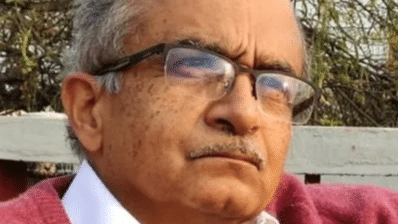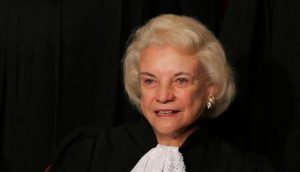The Supreme Court on Thursday allowed former Union minister Arun Shourie, veteran journalist N Ram and activist-lawyer Prashant Bhushan to withdraw their plea challenging the constitutional validity of Section 2(1)(c) of the Contempt of Courts Act, 1971.
The bench comprising Justices B R Gavai, Krishna Murari and headed by Justice Arun Mishra allowed the petition to be withdrawn with liberty to the petitioners to approach the appropriate judicial forum, except the apex court.
The bench was informed by senior advocate Rajeev Dhavan, who represents the petitioners, that they wish to withdraw the plea as several petitions on the same issue are pending before the apex court and they do not want their plea to be “entangled” with them. Dhavan informed that at this stage the petitioners want to withdraw the plea with liberty to approach the top court again, maybe after two months.
Ram, Shourie and Bhushan had challenged the constitutional validity of a legal provision dealing with criminal contempt for “scandalizing the court”, saying it was violation of freedom of speech and right to equality.
On August 8, an official source told PTI that the apex court administration had called for an explanation from officials concerned over the listing of the plea for hearing on August 10 before another bench of the top court comprising Justices DY Chandrachud and KM Joseph, but the matter was dropped the same day.
Justice Arun Mishra is also dealing two separate contempt of court cases against Bhushan. According to top court officials, Shourie, Ram and Bhushan also moved an application seeking stay on the proceedings in the two contempt cases pending against the activist lawyer.
The official, said on August 10, “It is a cardinal principle of law that a coordinate bench cannot stay the proceedings or on-going cases, which are pending before other similar bench. This would have created a problem as one court cannot stay the proceedings of other court having the same jurisdiction.”
The top court on August 10 had said further hearing was required in the 2009 criminal contempt case against Bhushan and journalist Tarun Tejpal to examine whether comments on “corruption” against judges per se amounted to contempt or not.
The provision that has been challenged as a violation of freedom of speech and expression defines what constitutes criminal contempt and says that if by way of publication of words, the dignity of the courts is lowered and if they scandalize the courts then the offence of contempt of court is deemed to have been committed.







